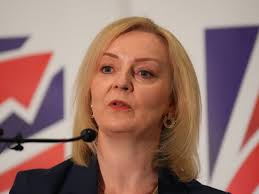The Political Journey of Liz Truss

Introduction
Liz Truss, the former Prime Minister of the United Kingdom, has become a significant figure in British politics, known for her brief yet impactful tenure in office. As the country continues to navigate economic and geopolitical challenges, understanding Truss’s policies and political journey is critical for grasping the current political landscape. Her leadership style and subsequent resignation have stirred debates and analyses that still resonate within political circles today.
Truss’s Ascension to Leadership
Elizabeth Truss was appointed Prime Minister in September 2022, following the resignation of Boris Johnson. Prior to her elevation to the highest office, she held multiple positions, including Secretary of State for International Trade and Minister for Women and Equalities. Truss’s political narrative has been characterized by bold policy proposals aimed at stimulating economic growth, particularly through tax cuts and deregulation. However, the implementation of these policies sparked controversy and debate almost immediately.
The Economic Crisis and Resignation
Shortly after assuming office, Truss introduced a mini-budget that proposed significant tax cuts funded by government borrowing. This approach led to turmoil in the financial markets, resulting in the rapid depreciation of the pound and soaring government bond yields. The backlash from both the public and Conservative Party members was swift, forcing Truss to abandon key aspects of her economic strategy. Just weeks into her premiership, she resigned, making her tenure the shortest in British history at just 49 days.
Impact and Aftermath
Truss’s departure marked a significant turning point for the Conservative Party, prompting discussions about party leadership and policy direction. Her policies reverberated through the party’s platform, with many members calling for a reassessment of economic strategies to restore stability. Despite her short time in office, Truss’s approach to governance raised critical questions about economic management and the role of effective communication during crises.
Conclusion
The political journey of Liz Truss highlights the complexities and challenges of modern governance. As the UK moves forward, her brief leadership serves as a case study in the impact of fiscal policy decisions and public perception. The implications of her policies will likely influence future elections and the broader conversation about the Conservative Party’s identity. Observers anticipate that her experience will inform both her future political endeavours and the strategic direction of her party as they seek to regain public trust and leadership in an ever-volatile political climate.








